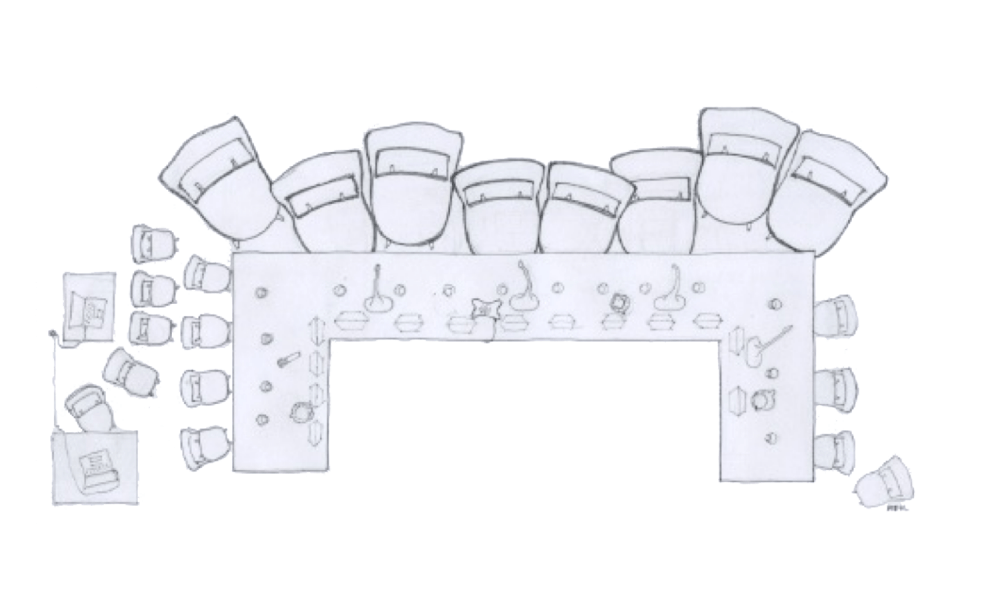“I can be fair and impartial.”
Every member of the judicial board — academic or community — must say those words before each hearing commences. If last week’s Community Judicial Board hearing involving the Dalai Lama Welcoming Committee (DLWC) is any indication, however, certain members of the board take their oath with as little sincerity as many students take to signing the honor code.
This is not meant to be an uncompromising criticism of the judicial board. I served on the Academic Judicial Board for a year and the task of the judiciary is not easy. It is made that much harder when the board’s process is being observed by an arena brimming with people, many of whom are not impartial. Open hostility and a seeming lack of preparation, however, are inexcusable no matter the extenuating circumstances.
The mistakes made by the board were blatant and repetitive. At times the board’s line of questioning assumed guilt on the part of the respondents. At others, it was the wording used by members of the board that betrayed their lack of impartiality, bordering on the point of intimidation. On separate occasions faculty members of the board made their feelings toward the respondents apparent. Once by referring to the five individuals as “you people” and the second time by confirming the group’s assertion that the “Coming Clean” letter was the only reason Jenny Marks ’14.5 had been called in front of the board by saying “we have nothing on Jenny,” implying that the board had considerable evidence against the other members. These are hardly indications of a neutral group.
Watching from the seats in Dana Auditorium, it seemed as if a combination of bias and a lack of preparation led to the mistakes and antics of the group. The most egregious moment happened early in the hearing when another faculty member — are you noticing a trend? — asked the respondents why they thought charges had been brought against them in this case, but not last spring when the group and others dressed up as the Board of Trustees outside Old Chapel during a board meeting. Such a question should never have been asked or permitted as it leaves the respondent caught between not answering the question and self-incrimination. A court of law — and I know the judicial board is not a court of law — would not allow a question asking a defendant why he or she was sitting in court on that day, but not on some previous day. The respondents answered in the only way they could: by telling the questioner that it was the job of the board to determine why charges had been brought against the DLWC leading to the hearing.
And the board needed further reminding of their duties. Twice student members of the board had to pause questioning to remind the respondents, the audience and their colleagues that they were indeed fair and impartial. In doing so, the board confirmed what had been apparent from the early stages of the trial — that certain individuals held less regard for fundamental fairness and impartiality than others. And then there was the structure of the trial, which, without a number of reminders and prompts from Associate Dean for Judicial Affairs and Student Life Karen Guttentag, would have passed over key elements of the trial, such as the closing remarks for both parties.
The open hearing on Nov. 1 exposed the best and the worst aspects of the College’s judicial system. While cooler heads ultimately prevailed — and the faculty and student members should be commended for their perseverance over the course of a marathon case after which they ultimately came to what most, it seems, believe is a fair and accurate punishment — the first three to four hours of the case were tense, awkward and at times utterly unnecessary. While the board acts as a whole, and therefore should be judged in its entirety, it is important to note that it was primarily the student members who best demonstrated neutrality throughout the course of the hearing, and when the back-and-forth between the respondents and the judiciary was at its nadir, the student members of the board stopped the discussion from derailing entirely.
While both the academic and community judicial boards are likely to feel less pressure in the future due to the nature of the issue and the format, last week’s hearing presents a considerable dilemma going forward. In a system that makes determinations of guilt or innocence based upon the preponderance of evidence, or “more-guilty-than-not,” a fair and impartial judiciary is of the utmost importance. Further, when a decision hinges upon an individual’s interpretation of what satire is or what constitutes an all-school email, the board’s neutrality cannot be in question. And while I believe the board made the correct ruling and offered an appropriate sentence, to suggest that the ends justify the means here would be to accept the very reasoning the board rejected during the hearing.
For Middlebury’s judicial system — where the message is inextricably tied to the method — to remain effective in the future, therefore, all members of the board must approach cases valuing the importance that neutrality plays in fundamental fairness.
A Call For True Impartiality

Comments



